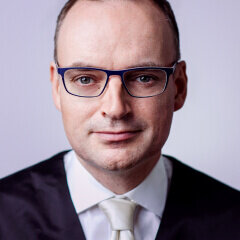
Unified Patent Court
One Court. For the whole of Europe.
Since patents, according to the principle of territoriality, have so far only guaranteed protection for the Member State in which they were granted, patentees have so far only been able to take legal action for patent infringements in the respective member state. This also applies to classic European patents, as these break down into their national parts after they have been granted. Likewise, third parties have so far been able to challenge the legal status of a patent exclusively (exception: opposition proceedings before the European Patent Office) before the national courts (in Germany, the Federal Patent Court is competent in the first instance).
Since the effects of the Unitary Patent extend to all member states participating in the Unitary Patent System, there is now also a need for a jurisdiction that can issue decisions with the corresponding territorial scope.
The Unified Patent Court is a common (supranational) court of the contracting states to the Agreement on a Unified Patent Court (UPCA).
Composition of the panels
Local Divisions
Depending on the number of patent proceedings initiated per calendar year in three consecutive years, the panel of a local division shall be composed of
- one legally qualified judge who is a national of the Contracting Member State hosting the local division concerned and two legally qualified judges who are not nationals of the Contracting Member State concerned and are allocated from the pool of judges (less than 50 cases); or
- two legally qualified judges who are nationals of the Contracting Member State hosting the local division concerned and one legally qualified judge who is not a national of the Contracting Member State concerned and is allocated from the pool of judges (more than 50 cases).
Regional Division
The panel of a regional division is always composed of two legally qualified judges chosen from a regional list of judges, who shall be nationals of the contracting member states concerned, and one legally qualified judge who shall not be a national of the contracting member states concerned and who shall be allocated from the pool of judges.
Central Division
The panels of the central division shall, in principle, consist of two legally qualified judges who are nationals of different contracting member states and one technically qualified judge allocated from the pool of judges with qualifications and experience in the relevant field of technology.
Court of Appeal
Finally, as regards the panels of the Court of Appeal, they are in principle composed of five judges, three legally qualified judges who are nationals of different contracting member states and two technically qualified judges with qualifications and experience in the field of technology concerned and assigned from the pool of judges.
At the request of one of the parties or after hearing the parties, a panel of a local or regional division may, on its own initiative, request the President of the Court of First Instance to assign to it from the pool of judges an additional technically qualified judge who has appropriate qualifications and experience in the relevant field of technology.
A legally qualified judge will preside over all cases.
Competence
For the majority of the types of actions provided for by the UPCA, the local or regional divisions are competent. As a rule, the actions are to be filed with the local or regional divisions of the member state,
- in the territory of which the actual or threatened infringement has occurred or is likely to occur, or
- in which Defendant has its domicile, the seat of its principal place of business or, in the absence thereof, its place of business.
Notwithstanding the above, an action may be brought before the central division in the following cases:
- if an infringement action is to be brought and an nullity action between the same parties concerning the same patent is already pending before the central division
- if the parties agree that an action should be dealt with by the central division.
In the following cases, an action must be brought before the central division:
- where Defendant is not domiciled or has not its principal place of business or, in the absence thereof, its place of business in the territory of the contracting member states, and no local division has been established in the member state in whose territory the actual or threatened infringement has occurred or is likely to occur, nor does the member state participate in a regional division
- in an actions for declarations of non-infringement of patents and supplementary protection certificates
- actions for revocation of patents and for declaration of invalidity of supplementary protection certificates
- actions concerning decisions of the European Patent Office in carrying out the tasks referred to in Article 9 of Regulation (EU) No 1257/2012
Duration of proceedings
The UPCA provides that a patent infringement case before the Unified Patent Court of First Instance should be concluded within 12 months. This means that there is little time for the individual stages of the proceedings. Good preparation of a court action is therefore essential for success. Our attorneys will be happy to advise you on this.


